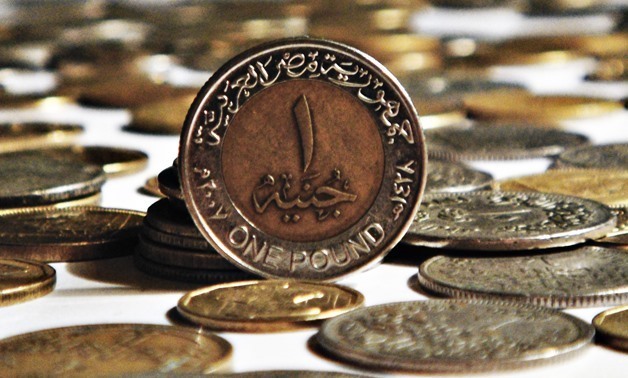
Egyptian pound - Reuters
CAIRO – 9 April 2020: Capital Economics expected the Egyptian currency to fall by around 7.5 percent by the end 2020 to 17/$.
It clarified the decline will take place as the Egyptian authorities would loosen their grip on the pound over the coming weeks.
“But we are increasingly concerned that policymakers haven’t learnt the lessons from the past decade and will hold on to the currency for too long, leading to a much larger and sharper adjustment further down the line,” it added in a research paper.
According to the research paper, Egypt’s central bank is intervening to prop up the pound, but the experience from the previous decade is that such efforts ultimately prove futile. If policymakers try to support the pound for an extended period, this risks repeating the problems that, in 2016, led to a 50 percent fall in the currency against the dollar.
“The pound has weakened by a little under 1 percent against the dollar since the start of March, when fears about the coronavirus outbreak escalated,” it stated, clarifying that this weakness is a much better performance than other EM currencies.
It added that figures released on April 7 confirmed that the central bank has been intervening to support the pound – FX reserves fell by $5.4 billion in March, the biggest monthly drop on record.
CBE announced Tuesday night that Egypt’s foreign reserves decreased by about $5.4 billion, recording $40 billion by the end of March 2020, clarifying that the decline came as a result of using the money to cover the Egyptian market's needs of foreign exchange, the drop in foreign investments and international portfolios.
“If past experience is anything to go by, policymakers are concerned that letting the currency weaken would lead to higher inflation and raise the possibility of social unrest. They may also be hoping that the recent period of market volatility will prove short-lived and risk appetite will quickly improve. The central bank indicated as much in the press release accompanying the reserve figures,” it stated.
The London-based consultancy said that the central bank can support the currency for a little longer – foreign exchange reserves of $40.1bn at the end of March comfortably cover Egypt’s gross external financing needs over the next year of around $16bn.
“That said, if capital flight continues, reserves could fall to perilously low levels quickly. Following the Arab Spring revolution in 2011, they fell from $36.0bn to just $18.1bn in the space of a year as the central bank held on firmly to the currency,” it clarified.
“The longer that policymakers keep a tight grip on the pound, the greater the imbalances that will build up,” it warned, noting that the pound was already looking overvalued.
According to the research, the real effective exchange rate has risen by over 60 percent from its trough and is now close its level before the 2016 devaluation, when the pound fell by 50 percent against the dollar. This deterioration in external competitiveness has already weighed on non-hydrocarbon exports, which have effectively stagnated since mid-2018.
It added that global efforts to contain the coronavirus outbreak will hit Egypt hard over the coming weeks and months via a slump in tourism revenues, exports and Suez Canal receipts. “This will cause downward pressure on the pound to intensify. But even once the virus is brought under control and the global economy returns to some sort of normality, maintaining an overvalued currency will hamper Egypt’s exports and entice imports.”
It clarified that propping up the pound will also deter foreign investors and force the central bank to keep interest rates high. And if FX reserves dry up, increasingly draconian steps will be required to ration foreign currency. “Prior to the 2016 devaluation, for instance, restrictions on access to dollars led to severe shortages of goods. All of this will severely disrupt economic activity – in the five years following the Arab Spring revolution in early 2011, GDP growth averaged just 3.8 percent, well below Egypt’s potential growth of 5-6 percent,” it explained.

Comments
Leave a Comment